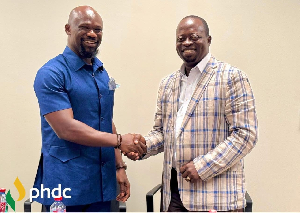Barely five months after Ghana launched the medical drone program, India which is has been touted as one of the world’s largest manufacturer of medicines has followed suit.
Many would have wondered why India which supplies major medicines to the majority of the world delayed in implementing such an innovative project until it was launched by the West African country in April 2019.
On Monday, September 16, 2019, the Government of Maharashtra and Zipline, the world’s first and only national scale drone delivery service, announced a partnership to use a logistics network of autonomous delivery drones to help transform emergency medicine and critical care in one of India’s most populous and dynamic states. The launch of this ground-breaking initiative will be supported through a grant from SII (Serum Institute of India), the largest vaccine manufacturer in the world.
The revolutionary new service, which is expected to launch operations in early 2020, is part of Government of Maharashtra’s bold vision of using drone delivery to establish universal, seven-days-a-week access to lifesaving and critical medicines for each of its 120 million citizens over the coming years. Zipline drones will make on-demand and emergency deliveries of blood products, vaccines and life-saving medications.
The Government of Maharashtra’s vision is for Zipline to establish a total of 10 Distribution centres across Maharashtra in phases over the next several years. The government’s goal is to put almost all of its 120 million citizens within minutes of a lifesaving medical delivery by drone. In the first phase of operations, two distribution centres located near Pune and Nandurbar will be established to service public health facilities in those regions beginning in early 2020.
The operations in Pune and Nandurbar will be financed through a grant from SII. Future distribution centers will be financed by the Government of Maharashtra and other private and philanthropic partners.
Ghana
In Ghana, Zipline claims it would be able to cover 2,000 health facilities that serve 12 million Ghanaians (of a population of just under 30 million)—from small community clinics and vaccination centers to larger general hospitals like Tafo – when all its four local centers become operational.
The company has been contracted by the government of Ghana to make 600 deliveries a day (150 deliveries from each center) for four years and they will be paid per successful delivery. It would cost Ghana $12.5 million during the period.
General News of Thursday, 19 September 2019
Source: mynewsgh.com













